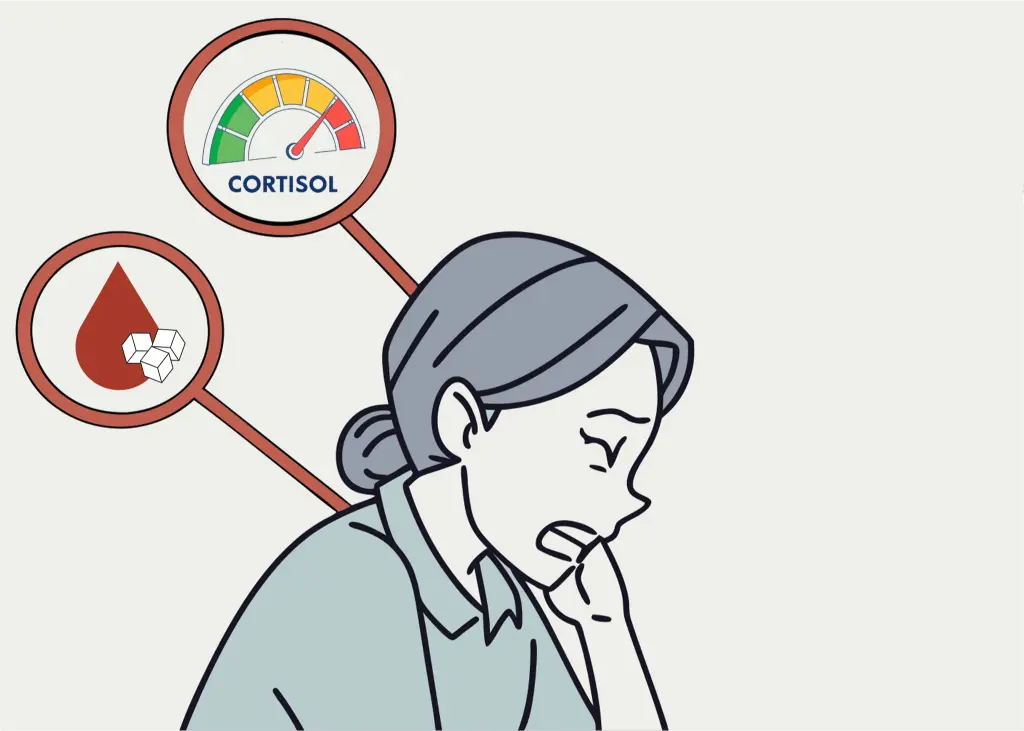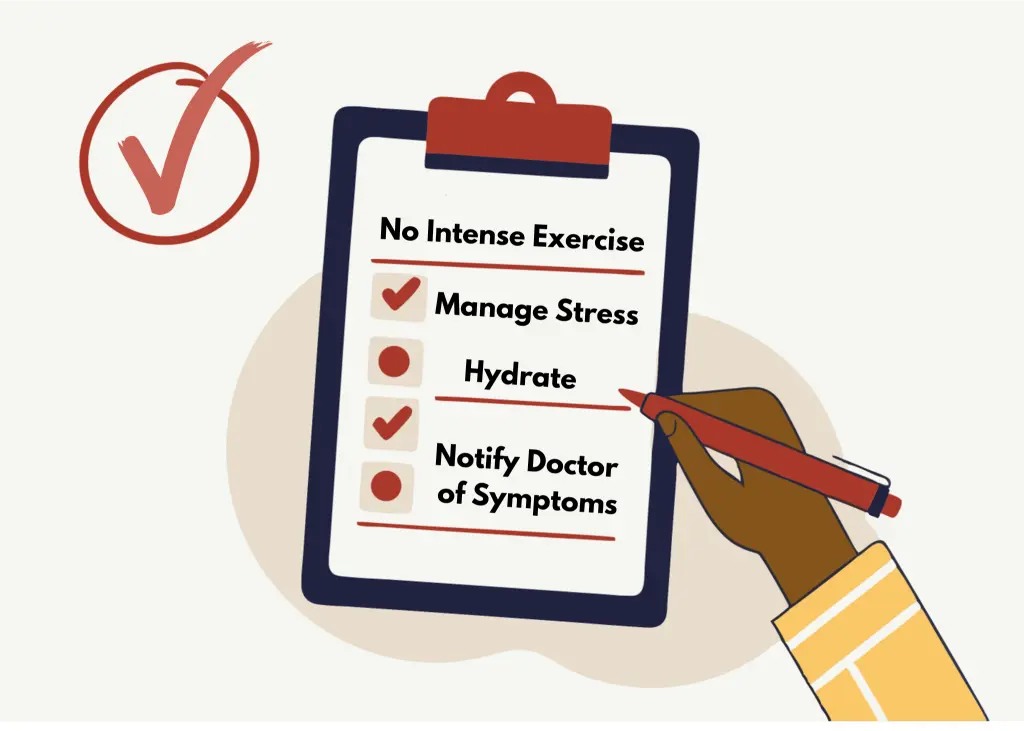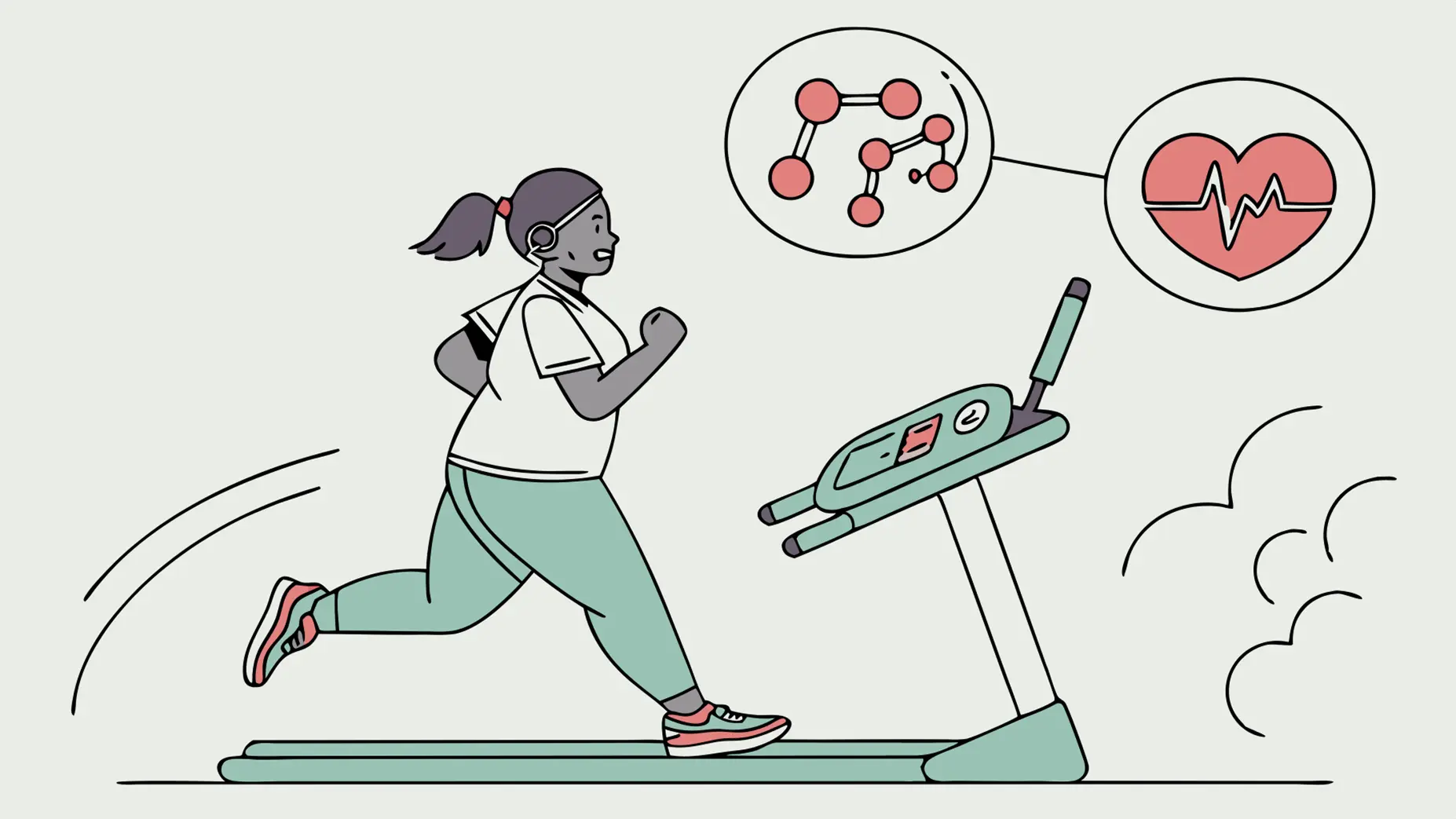Blood tests help you track your health and energy levels. But did you know that working out before blood work can change your test results? Even being in pain before your test can affect what your blood work shows. This guide explains how exercise and pain impact your blood tests and how to get the most accurate results.
How Exercise Changes Your Blood Test Results
When you work out, your body uses energy quickly and goes through several changes that show up in your blood tests.
Your Blood Sugar and Fat Levels Change
Exercising before blood work affects your metabolism in these ways:
- Lower blood sugar: When you exercise, your muscles use up glucose (sugar) from your blood. This can keep your blood sugar and energy levels lower for up to 24 hours after your workout.
- Higher fat levels: Your body breaks down fat for energy during exercise, which can temporarily raise fatty acids and triglycerides in your bloodstream.
Why this matters: If you’re checking your energy levels or metabolic health, exercising before your blood test might make your glucose look too low or your fat levels look too high.
Your Hormones Get Mixed Up
Exercise, especially hard workouts, makes your stress hormones go up quickly.:
- Cortisol rises: This stress hormone increases to give your body energy, but it can make your test results suggest you’re more stressed than you actually are.
- Growth hormone and testosterone fluctuate: These hormones affect muscle recovery and overall energy, and exercise can change their normal levels.
Your Muscle Markers Go Up
Hard exercise can cause small amounts of muscle damage, which releases substances into your blood like:
- Creatine kinase (CK)
- Lactate dehydrogenase (LDH)
- Myoglobin
These elevated levels are normal after exercise, but they might look like signs of muscle injury or disease on your blood work.
Can Pain Increase Blood Sugar Levels?
Yes, pain can increase blood sugar levels in several ways:
Short-Term Pain Effects
When you’re in pain, your body releases stress hormones like cortisol and adrenaline. These hormones:
- Raise your blood sugar levels
- Make your body less sensitive to insulin
- Your body might not use insulin well for a short time.
This means your blood sugar might be higher than normal, even if you haven’t eaten anything.
Long-Term Pain Effects
If you have ongoing chronic pain and fatigue, it can raise inflammatory markers in your blood like:
- C-reactive protein (CRP)
- Erythrocyte sedimentation rate (ESR)
These markers show inflammation in your body, but pain alone can make them go up even without any underlying disease.

How Long Should You Wait After Exercise?
To get the right results from your blood test, here’s when you should do it:
For Most Blood Tests
- Wait 24-48 hours after intense exercise before getting blood work done
- This is especially important for tests checking glucose, muscle enzymes, or hormones
For Fasting Blood Sugar Tests
- Avoid all exercise for 8-12 hours before your test
- Even light activity can lower your blood sugar and affect your results
If You’re in Pain
- Try to manage your pain before the test if possible
- Acute pain can spike your blood sugar and stress hormones
- Consider rescheduling if you’re experiencing severe pain
Tips for Accurate Blood Work
Before Your Test
- Talk to your doctor about any recent exercise, pain, or stress
- Stay hydrated but don’t drink excessive amounts of water
- Stick to your normal routine unless your doctor says otherwise
- Manage stress and pain using methods that help you, like relaxing exercises or medicine.
What to Avoid
- Intense workouts 24-48 hours before testing
- All exercise 8-12 hours before fasting blood tests
- Excessive stress or pain when possible
Why Getting Accurate Results Matters
When your blood work doesn’t reflect your true baseline health, it can lead to:
- Taking medicine you don’t need
- Wrong adjustments to your diet or exercise routine
- Unnecessary worry about your health
- Misunderstanding your actual causes of low energy or fatigue levels
Understanding how exercise and pain affect your blood tests helps you make better decisions about your health and energy management.

The Bottom Line
Working out before blood work and being in pain can both change your test results temporarily. To get the most accurate picture of your health:
- Wait at least 24 hours after intense exercise before blood tests
- Avoid all exercise for 8-12 hours before fasting tests
- Manage pain when possible before testing
- Always tell your doctor about recent exercise or pain
By timing your blood tests correctly, you’ll get results that truly reflect your health status. This helps you make better decisions about managing your energy, recovery, and overall wellness.
Always consult with your doctor for personalized advice about blood test preparation and interpreting your results.








